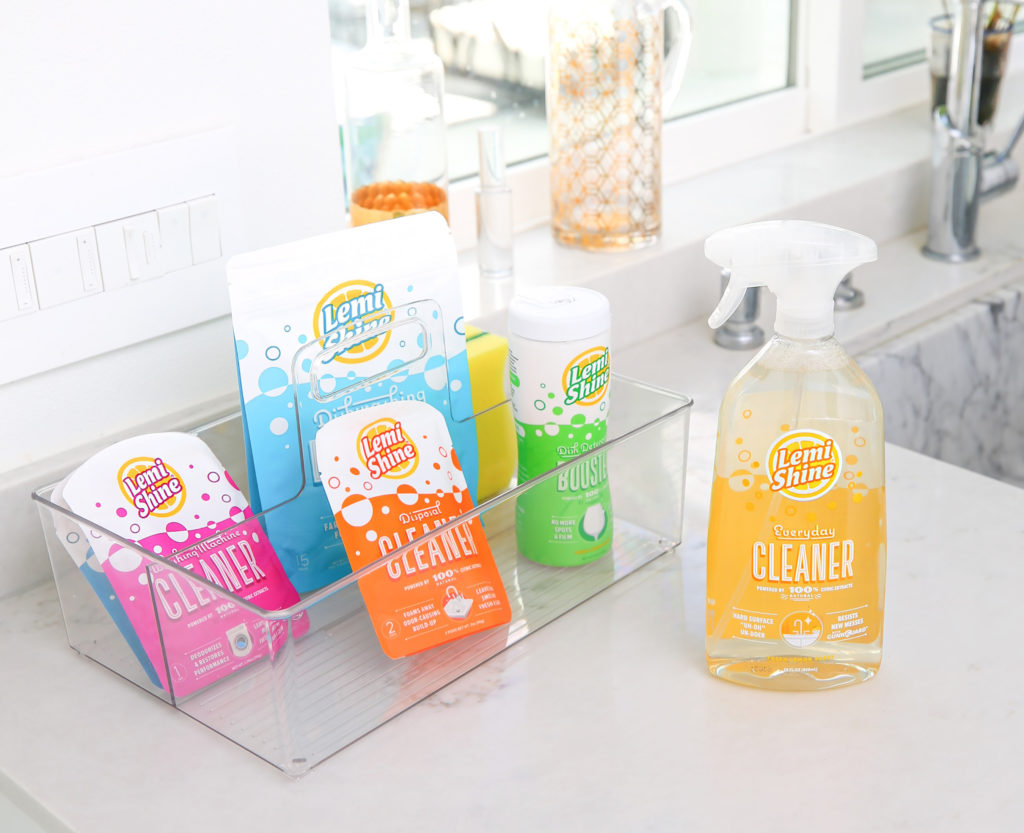
It’s a good time to be in the disinfectant and cleaning products business.
Curtis Eggemeyer, CEO of Lemi Shine, has seen demand for Lemi Shine, multi-surface antibacterial cleaner, disinfectant wipes, liquid dish soap and laundry detergent, skyrocket in sales since March.
“This isn’t something you can plan for,” Eggemeyer said. “Our demand is off the charts.”
Eggemeyer participated in a SKU Town Hall meeting on Coping with COVID-19: Amazon and D2C (Direct to Consumer), which was broadcast online at noon on Wednesday. It’s one in a series of online broadcasts SKU Accelerator has done since the Pandemic lockdown began in March. SKU Accelerator, based in Austin, works with consumer packaged goods companies, helping them to scale their businesses, launch new products, do marketing and sales, and attract investment. Kirstin Ross, managing director for SKU, led the discussion.
Austin-based Envirocon Technologies, doing business as Lemi Shine, has been making non-toxic cleaning products since 2007. It has 26 employees and more than $35 million in annual revenue, according to the company.
Lemi Shine bills itself as the “Better for You” household cleaning products brand. The active ingredient in its products is citric acid, which cleans grease and grime and also kills 99 percent of all bacteria.
In March, Lemi Shine saw a 50 percent increase in sales of its products and that is a trend that is going to continue, Eggemeyer said. It saw a 350 percent increase for disinfectant in March alone, he said. Lemi Shine sells 90 percent of its products through brick and mortar retailers with the rest of its online sales coming from Amazon. Its Amazon sales have increased 270 percent, he said.
The cleaning products industry overall is $59 billion industry in the U.S. with $16 billion of that in retail sales, and the industry accounts for 64,800 jobs, according to the American Cleaning Institute.
In March, H-E-B and other retailers saw consumers buying cleaning products with disinfectant properties as soon as they put them on the shelves. H-E-B placed limits on purchasing the cleaning products. Amazon has been sold out of most household disinfecting products.
Lemi Shine has faced some supply chain challenges with getting packaging from plastics makers, Eggemeyer said. But it is working to get products to its existing retail partners as quickly as possible, he said.
Puracy, an Austin-based maker of non-toxic, plant-based cleaning and personal care products, has seen a huge increase in the demand for its hand sanitizers and other products, said Sean Busch, one of its founders. Puracy, founded in 2014, sells its products online through its website and Amazon and through select retailers like Target.
Amazon has prioritized the shipment of many products to essential items only during the pandemic, said Carolyn Lowe, CEO of ROI Swift, an Austin-based digital marketing firm focused on retailers. Amazon also is not accepting any new retailers or products during this time, she said. A lot of the brands ROI Swift works with had four weeks of inventory at Amazon’s distribution centers at the time of the lockdown and they have fared well during these difficult times, she said.
Puracy is making alcohol-based hand sanitizers that are being produced at a distillery, Busch said. He’s also looking at expanding Puracy’s line of products to include surface disinfectants, he said.
Puracy has been bullish on direct to consumer and e-commerce sales in general since it launched, Busch said. The pandemic has accelerated the adoption of online shopping by consumers and he expects that to continue, he said.
Editor’s note: this article has been updated to provide the latest employee count and revenue figures for Lemi Shine.
